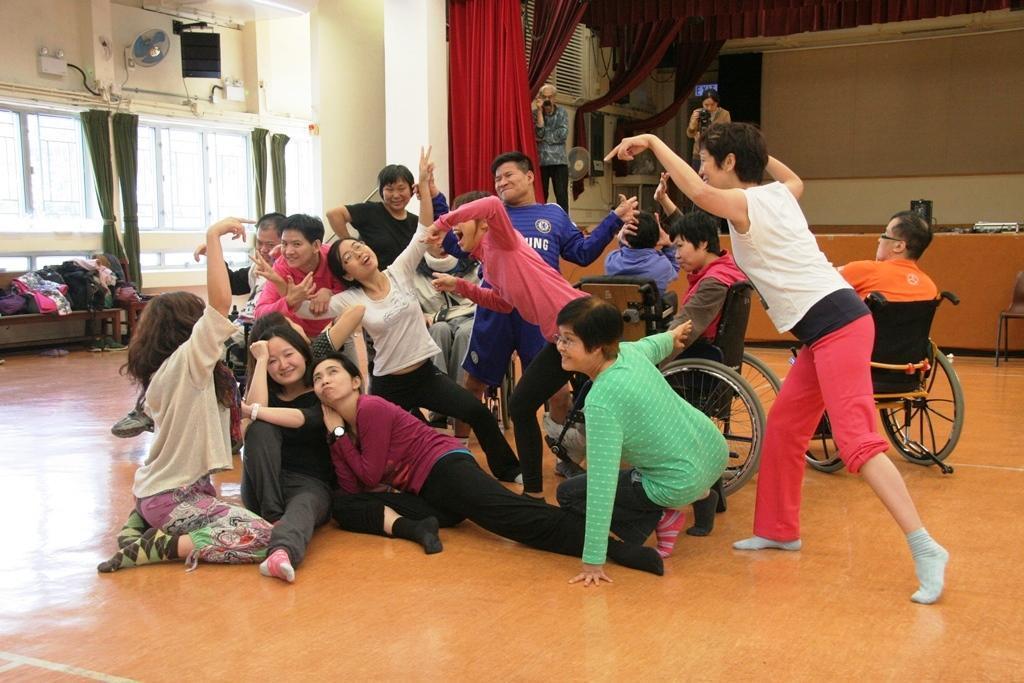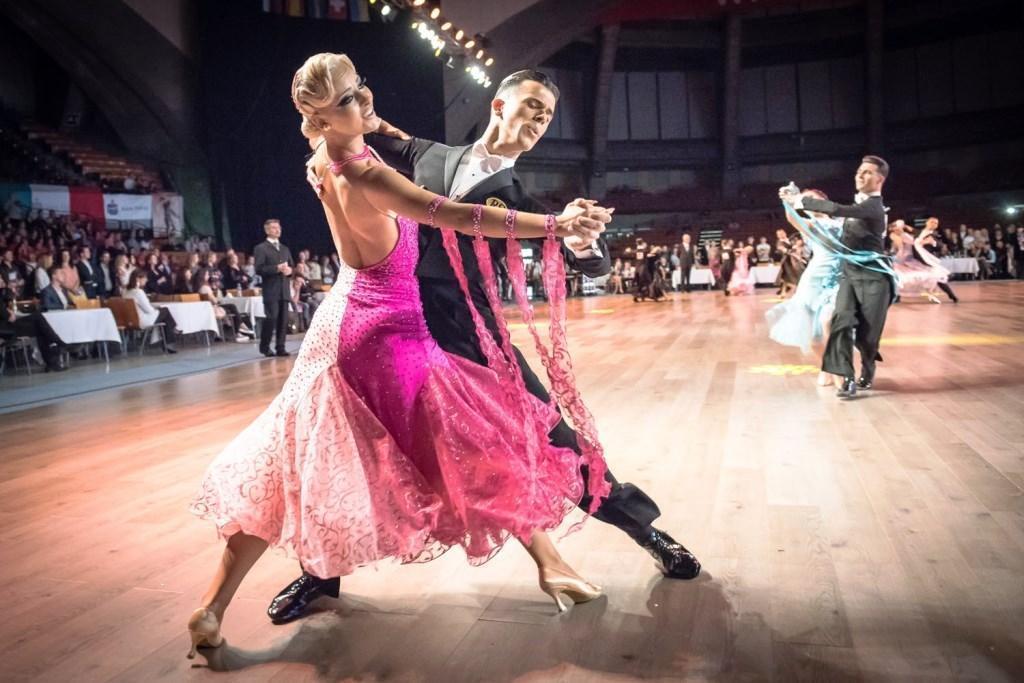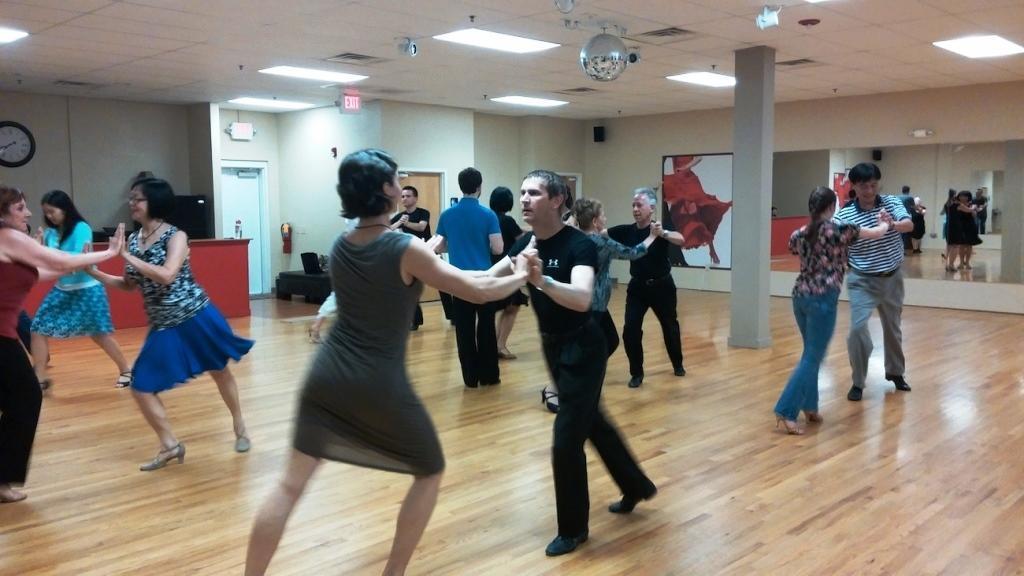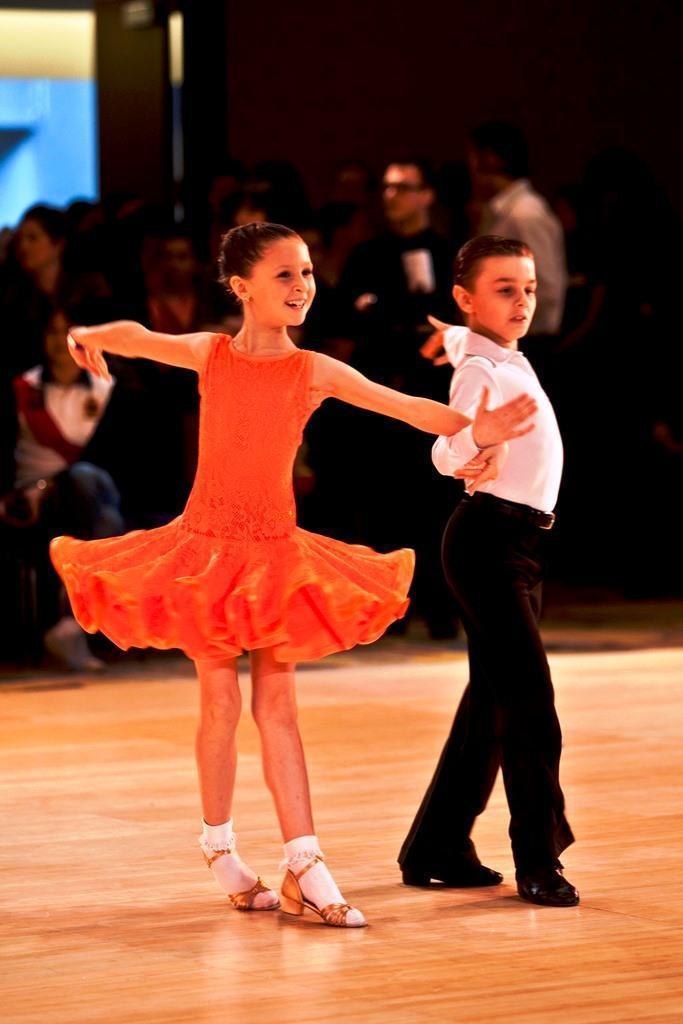
1. The National Ballroom and Latin Dance Initiative
The National Ballroom and Latin Dance Initiative
The National Ballroom and Latin Dance Initiative (NBLDI) is a UK-based organisation that promotes ballroom and Latin dance as a means of social inclusion. Founded in 2017, the organisation is dedicated to engaging people of all ages and backgrounds in ballroom and Latin dance, as well as providing support and resources to the wider dance community.
The NBLDI works with a variety of partners, including local authorities, community organisations, and dance schools, to deliver programmes that promote dance as an activity that can bring people together. The organisation also works with schools and universities to provide dance classes, workshops, and events.
Programmes
The NBLDI offers a range of programmes designed to engage people of all ages and backgrounds in ballroom and Latin dance. These include:
Social Inclusion Programmes
The NBLDI works with local authorities, schools, and community organisations to provide programmes that promote ballroom and Latin dance as a way of bringing people together. The programmes aim to engage people from different backgrounds and ages, and to provide a platform for them to share their experiences and learn from each other.
Dance Classes
The NBLDI works with dance schools and universities to provide classes and workshops for people of all ages and abilities. The classes are designed to teach the fundamentals of ballroom and Latin dance, as well as providing a platform for people to share their experiences and learn from each other.
Events
The NBLDI organises a variety of events, including competitions, workshops, and socials. These events are designed to bring people together and to promote the enjoyment of ballroom and Latin dance.
2. The National Dance Teachers Association
The National Dance Teachers Association
The National Dance Teachers Association (NDTA) is a professional body dedicated to the promotion of ballroom dancing in the UK. It is the only organisation of its kind in the UK and is committed to providing access to quality teaching and resources for all.
The NDTA works to ensure that everyone, regardless of background or ability, can access the wonderful world of ballroom dancing. The organisation provides a range of services and initiatives to this end, including:
1. Professional Qualifications
The NDTA offers a range of professional qualifications for ballroom dance teachers, from beginner to advanced levels. This ensures that all teachers are properly qualified and able to provide quality teaching to their students.
2. Accessible Resources
The NDTA provides a range of resources for teachers and students, such as music, videos, and books. These resources are designed to be accessible to all, regardless of ability or financial means.
3. Inclusive Events
The NDTA hosts a range of events throughout the year, such as competitions and workshops. These events are designed to be inclusive and accessible to all, with special consideration given to those with disabilities or special needs.
4. Social Inclusion Initiatives
The NDTA runs a number of initiatives aimed at promoting social inclusion through ballroom dance. These initiatives include free or discounted tickets for disadvantaged groups, as well as outreach programmes for schools and community centres.
The NDTA is dedicated to promoting social inclusion through ballroom dance, and is a great example of how the arts can be used to bring people together.
3. The Dance for All Campaign
The Dance for All Campaign
The Dance for All Campaign is a national initiative that seeks to promote social inclusion and equality through ballroom dance in the UK. The campaign was launched in 2018 with the aim of making ballroom dance accessible to all, regardless of age, ability, or background.
The campaign is led by a number of organisations, including the British Ballroom Dance Council, the National Dance Teachers Association, and the UK DanceSport Federation. It works to raise awareness of the benefits of ballroom dancing, and to promote its inclusion in schools and other educational settings.
Initiatives
The Dance for All Campaign has a number of initiatives in place to promote social inclusion through ballroom dance. These include:
1. Training and Education
The campaign provides training and education resources to schools and other educational settings, in order to raise awareness of the benefits of ballroom dance and to promote its inclusion.
2. Accessibility
The campaign works to make ballroom dance accessible to all, regardless of age, ability, or background. This includes providing funding for equipment and resources, as well as offering discounts on lessons and classes.
3. Community Engagement
The Dance for All Campaign works to engage with local communities, in order to raise awareness of the benefits of ballroom dance and to promote its inclusion. This includes running workshops and events, as well as providing support and guidance for local groups and organisations.
4. Media Campaigns
The campaign also runs media campaigns to raise awareness of the benefits of ballroom dance and to promote its inclusion. This includes running adverts on radio and television, as well as producing articles and videos for online platforms.
5. Research and Evaluation
The Dance for All Campaign works to evaluate the impact of its initiatives, and to conduct research into the benefits of ballroom dance. This includes gathering data on the number of people taking part in ballroom dance, as well as measuring the impact of its initiatives on social inclusion.
4. The British Dance Council’s Diversity and Inclusion Programme
The British Dance Council’s Diversity and Inclusion Programme
The British Dance Council (BDC) is committed to promoting social inclusion through ballroom dancing. As part of this commitment, the BDC has launched the Diversity and Inclusion Programme, which aims to make ballroom dancing more accessible to all.
Programme Aims
The programme has three main aims:
1. To raise awareness of the importance of diversity and inclusion in ballroom dancing.
2. To promote the participation of people from all backgrounds in ballroom dancing.
3. To increase the representation of diverse communities in ballroom dancing.
Programme Activities
The Diversity and Inclusion Programme includes a range of activities to help achieve its aims. These include:
• Working with local dance schools to provide free or discounted classes for people from disadvantaged backgrounds.
• Offering grants and scholarships to support the development of ballroom dancers from diverse backgrounds.
• Running workshops and seminars to raise awareness of diversity and inclusion in ballroom dancing.
• Organising events and competitions to promote the participation of diverse communities in ballroom dancing.
• Working with the media to promote positive messages about ballroom dancing and its potential to bring people from all backgrounds together.
The BDC is also working to improve the diversity of its own membership, by encouraging more people from diverse backgrounds to become members.
Conclusion
The British Dance Council’s Diversity and Inclusion Programme is an important initiative that is helping to make ballroom dancing more accessible to all. Through its activities, the BDC is helping to promote social inclusion and increase the representation of diverse communities in ballroom dancing.
5. The Royal Academy of Dance’s Inclusive Dance Programme
The Royal Academy of Dance’s Inclusive Dance Programme
The Royal Academy of Dance (RAD) has been at the forefront of promoting social inclusion through ballroom dance in the UK. Its Inclusive Dance Programme (IDP) has been running since 2008 and is designed to provide dance opportunities to people of all ages, backgrounds and abilities.
What is the Inclusive Dance Programme?
The IDP is a comprehensive programme that provides access to quality dance education and training for people with physical, sensory or learning disabilities, as well as those from disadvantaged backgrounds. It also provides support for teachers and dance professionals to develop their skills and knowledge in teaching and leading inclusive classes.
What does the Programme Offer?
The IDP offers a range of activities, from introductory classes to professional training. It also provides a range of resources and support for teachers and professionals. These include training courses, workshops, resources and materials, and funding for specific projects.
How is the Programme Funded?
The IDP is funded by the RAD, as well as by donations from individuals and organisations. It also receives funding from the government and other trusts and foundations.
What Impact has the Programme had?
The IDP has been highly successful in providing dance opportunities to a wide range of people. It has enabled more people to access quality dance education and training, and has helped to create a more inclusive and diverse dance community in the UK. It has also provided support to dance professionals, helping them to develop their skills and knowledge in teaching and leading inclusive classes.
6. The UK DanceSport Federation’s Inclusive Dance Programme
The UK DanceSport Federation’s Inclusive Dance Programme
The UK DanceSport Federation (UKDSF) is committed to promoting social inclusion through ballroom dancing. As part of this commitment, they have created the Inclusive Dance Programme.
Aims and Objectives
The aim of the Inclusive Dance Programme is to provide access to ballroom dancing for those who may not have otherwise had the opportunity. The programme is designed to be accessible to all, regardless of age, gender, ability, or any other factor.
Activities
The Inclusive Dance Programme offers a range of activities, including:
– Dance classes in a variety of styles, from beginner to advanced
– Accessible dance competitions
– Social events
– Workshops and seminars
– Mentoring and support
Partnerships
The UKDSF is committed to working in partnership with local organisations to ensure that the Inclusive Dance Programme is delivered in a way that meets the needs of local communities.
Outcomes
The UKDSF’s Inclusive Dance Programme has been successful in providing access to ballroom dancing for those who may not have otherwise had the opportunity. The programme has also helped to create a more diverse and inclusive dance community, and has helped to foster a greater understanding and appreciation of the art form.
Conclusion
The UK DanceSport Federation’s Inclusive Dance Programme has been successful in promoting social inclusion through ballroom dancing in the UK. The programme has provided access to ballroom dancing for those who may not have otherwise had the opportunity, and has helped to create a more diverse and inclusive dance community.
7. The Dance for All Schools Programme
7. The Dance for All Schools Programme
The Dance for All Schools Programme is a UK-wide initiative that seeks to promote ballroom dancing in schools. The programme is funded by the Department for Education and Skills (DfES), and is managed by the National Ballroom Dance Association (NBDA). The initiative aims to raise awareness of ballroom dancing and to encourage pupils to take up the activity.
Programme Goals
The Dance for All Schools Programme has three main goals:
1. To raise awareness of ballroom dancing and its benefits among pupils and teachers.
2. To encourage pupils to take up ballroom dancing as a recreational activity.
3. To provide resources and support to teachers and schools to enable them to deliver quality ballroom dance lessons.
Programme Delivery
The Dance for All Schools Programme is delivered through a network of regional and local dance clubs. Each club is responsible for delivering the programme in its own area. The clubs provide resources and support to teachers and schools, including guidance on lesson planning, teaching methods and assessment.
The programme also provides funding for the purchase of equipment and resources for schools, and for the training of teachers in ballroom dance.
Conclusion
The Dance for All Schools Programme is an important initiative that seeks to promote social inclusion through ballroom dance in the UK. The programme has been successful in raising awareness of ballroom dancing and its benefits, and in encouraging pupils to take up the activity. The programme provides resources and support to schools and teachers to enable them to deliver quality ballroom dance lessons.
8. The National Ballroom Dance Championships
The National Ballroom Dance Championships
The National Ballroom Dance Championships (NBDChamps) is the largest annual ballroom dance competition in the UK. It is a celebration of the art of ballroom dancing, and a showcase of talent from all over the country.
History
The NBDChamps was founded in 2002 by the British Ballroom Dance Council (BBDC). It is held every year in a different city in the UK, and features a variety of different levels of competition.
Competition Categories
The NBDChamps is a competition for all levels of ballroom dancers, from beginners to professionals. There are different categories for different levels of experience, from novice to advanced. The categories include:
• Novice: This is for those who are just starting out in ballroom dancing.
• Intermediate: This is for those who have some experience in ballroom dancing.
• Advanced: This is for those who have more experience in ballroom dancing.
• Professional: This is for those who have a high level of experience in ballroom dancing.
Social Inclusion
The NBDChamps is committed to promoting social inclusion through ballroom dance. It provides a platform for all levels of dancers to come together and celebrate the art of ballroom dancing. It also encourages dancers of all backgrounds and abilities to take part in the competition.
Prizes
The NBDChamps offers a variety of prizes for the winners of each category. These include cash prizes, trophies, and medals.
Conclusion
The NBDChamps is an important initiative that promotes social inclusion through ballroom dance in the UK. It provides a platform for dancers of all backgrounds and abilities to come together and celebrate the art of ballroom dancing.
9. The British Dance Council’s Inclusion and Accessibility Awards
The British Dance Council’s Inclusion and Accessibility Awards
The British Dance Council (BDC) is the leading governing body for ballroom dancing in the UK and has been at the forefront of promoting social inclusion and accessibility in the sport for many years.
In 2017, the BDC launched its Inclusion and Accessibility Awards to recognize and reward organizations and individuals who have made a significant contribution to promoting ballroom dancing as an inclusive and accessible activity. The awards are open to any organization or individual in the UK who has demonstrated an ongoing commitment to encouraging social inclusion and accessibility through ballroom dancing.
The BDC awards are divided into two categories – the Inclusion Award and the Accessibility Award.
The Inclusion Award
The Inclusion Award is presented to organizations or individuals who have successfully implemented initiatives that have made ballroom dancing more accessible and inclusive for people with disabilities, mental health issues, or from minority backgrounds.
The Accessibility Award
The Accessibility Award is presented to organizations or individuals who have developed initiatives that have made ballroom dancing more accessible to people with physical disabilities or limited mobility.
The awards are judged by a panel of experts from the BDC and the wider ballroom dance community. The winners of the awards are announced at the annual BDC Ballroom Dance Awards ceremony, with the winners receiving a cash prize and a trophy.
The BDC’s Inclusion and Accessibility Awards have been instrumental in raising awareness of the importance of making ballroom dancing an inclusive and accessible activity for everyone, and have helped to create a more diverse and vibrant ballroom dance community in the UK.
10. The National Ballroom and Latin Dance Championships for Disabled Dancers
The National Ballroom and Latin Dance Championships for Disabled Dancers
The National Ballroom and Latin Dance Championships for Disabled Dancers is an annual event that takes place in the UK. It was founded in 2008 and is the only event of its kind in the UK. The event is open to all dancers with a disability, including physical, visual, and learning disabilities. The event is organised by the National Disability Dance Association (NDDA) and is held in partnership with the British Dance Council (BDC).
The event is an opportunity for disabled dancers to compete in ballroom and Latin dance competitions. It is also a chance for disabled dancers to meet and socialise with other disabled dancers from all over the UK.
The event is held in a different location each year and is usually held in the spring or summer months. It typically consists of a number of different categories including wheelchair dances, amputee dances, and visually impaired dances.
Aims
The National Ballroom and Latin Dance Championships for Disabled Dancers aims to promote social inclusion and provide a platform for disabled dancers to showcase their talents. It also encourages disabled dancers to take part in the sport of ballroom and Latin dance, and to gain confidence in their abilities.
Prizes
The event offers a range of prizes for the winners of each category. These include trophies, certificates, and cash prizes.
Support
The event is supported by a range of organisations and charities, including the NDDA, the BDC, and the British Paralympic Association. The event is also supported by a range of sponsors, including the Department for Work and Pensions, the BBC, and the British Council.
Conclusion
The National Ballroom and Latin Dance Championships for Disabled Dancers is an important event that promotes social inclusion and provides a platform for disabled dancers to showcase their talents. It is a great opportunity for disabled dancers to come together and compete in a fun and supportive environment.




